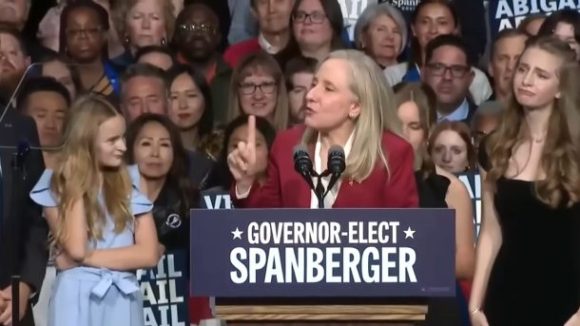Reforms Help Teachers Ditch Unwanted Unions
The recent experiences of Florida and Arkansas show that, when government stops impeding American educators’ exit from teacher unions, many will leave them.

As a nationwide, scientific survey of registered voters conducted last May by RMG Research, a firm founded by legendary pollster Scott Rasmussen, reconfirmed, the Right to Work principle is extraordinarily popular.
The survey revealed that, by an 8:1 margin, registered voters agree that workers “should never be forced to join a union or pay dues to a union as a condition of employment.”
Overwhelming public support for the Right to Work primarily reflects ordinary citizens’ understanding that forcing workers to bankroll a union, or be fired, is just plain wrong. But it is also based upon Americans’ well-founded belief that Right to Work protections are economically beneficial.
U.S. Census Bureau data, adjusted for interstate cost-of-living differences according to an index calculated by the Missouri Economic Research and Information Center, a state government agency, show that the average after-tax income per person in the 26 Right to Work states in 2024 was $61,877.
That’s roughly $2,500 higher than the forced-dues state average, according to the same analysis, which was carried out early this year by the National Institute for Labor Relations Research.
“Big Labor and its puppet politicians like to claim higher real disposable incomes and faster job growth in Right to Work states are mere coincidences,” noted National Right to Work Committee Vice President Matthew Leen.
“But there is a growing body of scholarly evidence showing that, in reality, Right to Work protections foster higher living standards wherever they are in effect.
“For example, a thoroughly documented article coauthored by a team of finance specialists from New Zealand, Australia, the UK, and the U.S., and published this March in the Journal of Banking and Finance, reported that, by adopting Right to Work laws, states increase their venture capital, or VC, investment by 68-82%.”
As the coauthors explained in a précis of their article, VC investment puts the funds of institutional investors and wealthy individuals into new projects with high growth potential.” As prior research shows, VC “enhances innovation, improves productivity, and fosters strategic alliances between firms.”
Bans on forced union dues and fees consequently contribute to faster economic growth and higher job creation, concluded the article (“Right-to-Work Laws and Venture Capital Investment”).
Mr. Leen commented:
“The new Journal of Banking and Finance research article is but one of many recent academic analyses showing that Right to Work laws benefit employees and businesses.
“Another example is a 2023 paper coauthored by Vojislav Maksimovic and Liu Yang, two professors affiliated with the University of Maryland’s Smith School of Business.
“Using Census Bureau data, Drs. Maksimovic and Yang found that plants subjected to union monopoly bargaining have ‘lower and less effective incentives’ for employees. Consequently, unionized plants experience ‘higher rates of closure, reduced investment, and slower employment growth.’
“Right to Work laws significantly reduce the financial reward Big Labor reaps by securing monopoly-bargaining power over private-sector employees, because individual employees retain the freedom not to bankroll the union. Right to Work laws also inhibit the ability of union bosses to secure such privileges in an organizing campaign.
“For these and other reasons, it is not surprising Drs. Maksimovic and Yang were able to provide, in their own words, ‘causal evidence that states that adopt . . . [Right to Work] laws experience a boost in employment and investment.’”
Mr. Leen concluded:
“Specialists in finance, management and economics are doing stellar work in showing how Right to Work laws lead to higher living standards and more good jobs.
“But you don’t have to be an expert in any of these fields to understand that Right to Work is economically beneficial. It makes it more difficult for Big Labor to penalize the most productive workers. How could the economic results be anything other than positive?”
This article was originally published in our monthly newsletter. Go here to access previous newsletter posts.
To support our cause and help end forced unionism, go here to donate.

The recent experiences of Florida and Arkansas show that, when government stops impeding American educators’ exit from teacher unions, many will leave them.

"[Spanberger] voted twice for the so-called ‘PRO Act,’ which would have destroyed the Virginia and every other state Right to Work law, and cosponsored it one last time before stepping down to run for governor."

“Jewish teachers must allow NEA union bosses who evidently loathe them to speak for them on all matters concerning their pay, benefits, and work rules!”